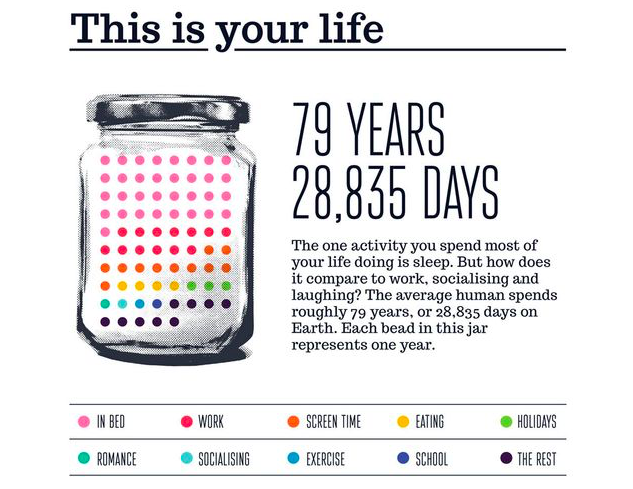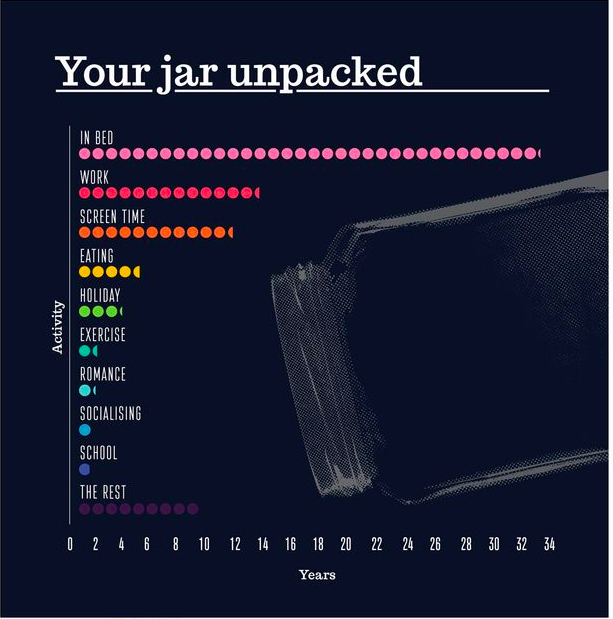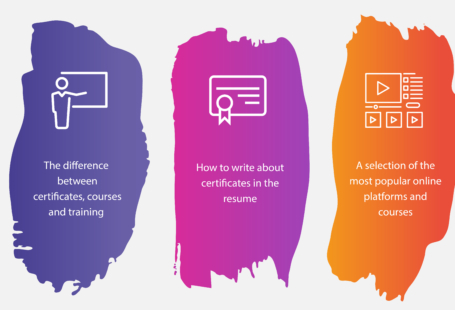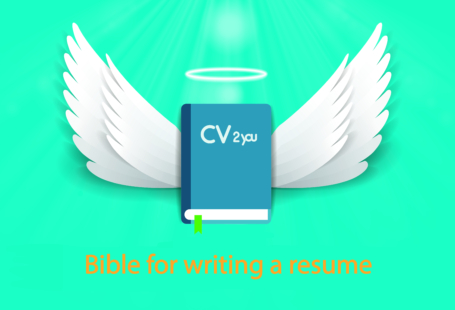It is common knowledge that we spend most of our time at work. The Huffington Post even conducted a study on this topic. Therefore, the question of finding a job is, without overstating the case, a life-changing issue. At the beginning of a job seeker’s career, salary is the decisive factor. However, as a recent study published in Forbes shows, salary increases don’t always have a positive effect on people at different income levels or in certain industries.
However, over the years, the search query changes from “how to find a well-paid job” to “how to find a good job.” And although a good job may not always be highly paid, it is one you want to do every morning.
Therefore, we’ll try to give some tips to help with your search:
- Make sure your choice is right
- Balance skill with passion
- Consider the pros and cons of work
- Look for a job somewhere else besides special sites
- Focus on your minimum requirements
- Looking beyond a formal job
How to get a job and make the right choice
The difference between part-time work in college and real work is that in the first case you’re not looking to build a career, but only to earn a living. When the time comes to climb up the career ladder, many people focus on their diploma and their degree.
You shouldn’t let your choice depend on your education, however. Research shows that members of Generation Z (born after the mid-90s) are more likely to change jobs than their parents. Also, 83 per cent of them reported that they were going to keep changing jobs until they found the perfect post. There are many cases where educated engineers have become artists and lawyers have gone into journalism. Ideally, the education you receive is the path that leads you to your chosen profession, but this is not necessarily so for everyone.
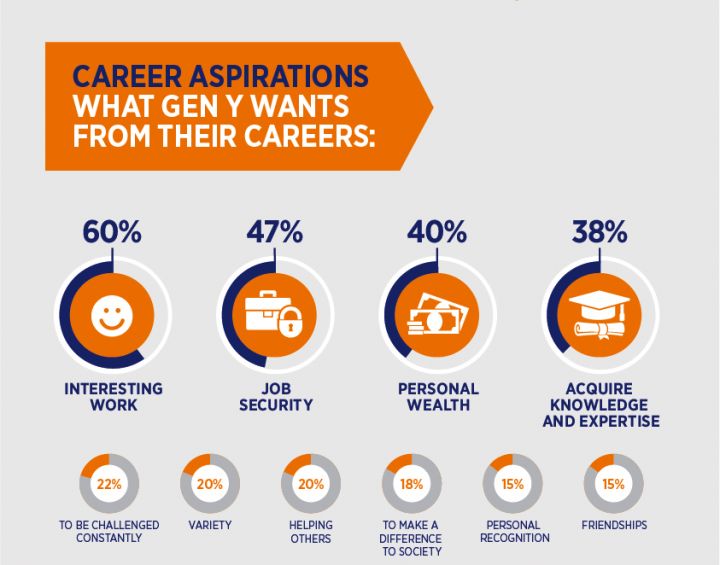
According to studies, members of Generation Y (or Millennials) are the last cohort to choose wages. Development and career development are central for them.
There are a lot of orientation tests that show where your strengths lie. These tests are great for those who are not sure what exactly they want but are eager to find the answer. At the end of this article, you can find links that will connect you to some of a couple of these orientation tests.
Careers consultants are always available to provide guidance. While this may not be a cheap option, it is suitable for those who worry about finding a job when they do not know what they want and who are ready to take a holistic approach.
Tip 1: The first step is to make the right choice. If you’re in doubt, ask a careers consultant for help. Alternatively, seek advice from former HR managers in your industry or more experienced colleagues. Find people who are already going your way by writing to them (through Linkedin?) and asking for a short call.
Balance skills with passion
Doing what you love doing is great, but every job requires a certain skill set. Define your best features, those qualities that make you competitive, and then think about which of your skills you like the most and which you want to develop further.
The key is the ability to do something. You may want to work in graphic design and be passionate about watching trends in this niche, but if you can’t draw at all, it’s maybe not for you. So, you need to focus on your other passion and match it to your skills.
Think of how much you want to be a specialist in a particular field, but do not let the romanticism of some professions make you forget about the reality behind the scenes.
Are you ready to spend most of your time developing skills for your chosen profession? Suppose you want to become a journalist. That kind of employment requires an analytical mind, the courage to write or talk about what others would rather be silent about and the ability to be connected 24/7 to move up the career ladder. Being prepared for all of these factors strengthens your capacity to learn about a profession, which means that this is a good job for you.
How to find a job you like: pay attention to the pros and cons
When it comes to interview time, it’s a two-way street. Not only does the company interview you, but you also interview the company. For some, the ideal is an 8-hour schedule, a sedentary work habit and a lunch at the same time every day. For others, more creativity and spontaneity are required. The author of the article on cashmoneylife describes in detail what it means to work on different work schedules, so if you are interested in considering several options, please pay attention to this material.
Consider carefully what working conditions are right for you. Prepare questions about the culture of the company to avoid any misunderstanding or confusion. Good work is a job that does not leave you perpetually longing for the weekend, which means that the schedule, dress code and team should suit you.
Now, when you are looking for a job to your liking, the level of salary can fade into the background: when a person does what s/he loves, then the business will always pay for itself in the future. It is important to remember both the good and the bad aspects of the profession. A high position and success do not come immediately, but if you understand what obstacles may lie ahead, it will be easier to assess if your passion matches up with your chosen career.
A good job is one that does not cause you to live “from weekend to weekend“
Take a career assessment:
Free assessment tools are readily available on the internet and can provide you with valuable insight into your personality, skills, and values. These assessments range from personality tests to inventories of your strengths and interests. By taking multiple assessments and comparing the results, you can gain a deeper understanding of yourself and your career preferences. Additionally, these assessments can help identify potential job opportunities that align with your strengths and interests. So if you’re struggling to find a job you’ll love, taking career assessments could be a helpful first step in your job search journey.
Interests
When it comes to planning your career, understanding your interests can be highly beneficial. While career interests are distinct from abilities and skills, people often find themselves drawn to activities that they genuinely enjoy and have an interest in. By engaging in these activities, individuals have the chance to hone and develop their skills and abilities, which can be a great asset when seeking out job opportunities that align with their interests.
Personality Assessment
Personality refers to how a person thinks, feels, and behaves, and certain aspects of it can be valuable when considering career development. Follow the link to access and take five distinct personality assessments.
Skills
Skills are acquired capabilities and aptitudes that can be useful for career growth, ranging from technical proficiency to personal development and leadership abilities.
Where to find a job you like?
Now let’s talk about where and how to find the job that your heart is set on. The internet is full of job-seeking exchanges, with employers looking for workers and people looking for work. These portals are a help, no doubt, but let’s not forget that there are hundreds of people like you in places like this, which means the chances of getting something interesting and unique are less than you would like.
Here are several places, besides the usual sites of work, where you might see a suitable vacancy:
1. Facebook. Social media is developing rapidly. From a platform for communication and photo sharing, Facebook has evolved into a powerful means of exploring opportunities. There are two ways to promote yourself:
- Write a quality post about who you are, what you can do and what you are looking for and publish on your page asking for help. Your friends may have seen some interesting offers on the social network and knowing that you are interested in it, will send you information
- It is also possible to send a creative resume to the kind of interest groups that employers often visit. For example, there are special communities of creators, programmers and HR specialists where your resume may be noticed and forwarded to a suitable employer.
2. Company sites. It often happens that companies post job vacancies only on their website in the Jobs or Vacancies sections. At a minimum, the fact that you visited their site and sent your resume in response will show your interest in this company and will be noted.
3. Use meetup.com to find like-minded people. People with common interests, occupations and hobbies come to meetups to exchange thoughts and ideas. So, for example, thinking about the work of a programmer, you can attend an event and form your opinion about the difficulties faced by workers in this field. It is easy to make an appointment: register on the site and find a group of like-minded people or create a new one of your own.
Tip 2: Make a shortlist of companies that you would ideally like to work for. Perhaps they do not have vacancies now, but you can subscribe to their pages in social networks, or add your details to their HR contacts and you will hear about opportunities as they arise.
Assess job responsibilities
Let’s say that you find an SMM specialist job. In the list of duties, you see the usual tasks of keeping social media pages and writing press releases. You also notice that the job requires the postholder, to communicate with the company’s customers, both online and offline. An introvert might not be comfortable with that level of contact, so the job may not suit everyone. You need to assess the job responsibilities and decide if you would be happy with them.
Ask yourself if this job will advance your career? If the answer satisfies you, then one unwanted task amongst many other, more enjoyable responsibilities may not take the shine off the job for you.
Tip 3: Your job is your daily responsibility. Be sure to ask what your typical workday looks like. Check with the recruiter what the division of work tasks will look like. Assess mentally whether everything suits you.
Set your minimum requirements
Of course, we don’t mean that you fill your resume with a list of demands for your prospective employer. These items are the reference point that will help you stay on track. They can be written on a separate piece of paper or kept only in your head. If you’re hoping to trade a regular job for a job that you’ll really be proud of, then you need to articulate more clearly what makes you feel energised and willing to work.
Such requirements might look like this:
- You’re not attached to a job. You’re free to work from anywhere in the world as a freelancer
- There are career opportunities at the company
- A certain level of salary which cannot be lower than the industry standard
- Availability of professional training and team building
- Small or large team?
- Starting as a supervisor
- Ability to travel in connection with work
Everyone has things that make them feel better. CV2you insists that work can and should be a source of inspiration.
Don’t set limits
As we have said before, education is desirable but not necessary. Perhaps you are the right person for such unique professions as ideal sleeping or exploring new islands. You can even become a burgerologist if that’s the job you’ve set your sights on.
There are inventive people, and there are VERY inventive people. American Jason Sadler came up with the perfect job for himself and rented out his torso! Now, anyone who wants to advertise their product can contact Jason and he will wear a T-shirt with the logo of that company. We do not claim that such a solution is for you but only put it forward to demonstrate that everyone can find a job to their liking. You just need to broaden your everyday horizons and not be afraid to try new things.
Tip 4: There are actually a lot of job titles right now. And since today the principle of “one job for life” is dead and gone, you need to identify your professional interests. And remember that specific positions will differ from company to company, so create several versions of your resume and adjust it to the current request.
Know when to quit your current job
When you type in the search line “how to find a good job”, you have already taken the first step towards a worthy goal – to do the thing you love. Don’t rush to abandon what you’re doing right now. These are questions that should be approached in a practical way rather than emotionally. Leaving your job before you have a new source of income is never a wise idea.
Sure signs that you can resign:
- You have a financial cushion for the next 2-3 months. That is, you are able to provide for yourself and have enough money to meet your basic needs.Calculate your costs per month and multiply them by a factor of 2 or 3. This will be the amount that will provide you with peace of mind when you leave your job. Otherwise, your job hunt will end up with you prioritising the financial side of things instead of changing the type of activity.
- You are confident that leaving your old job will speed up your search for new employment. Working from 9 to 6, you may not have time to complete applications and attend interviews, so the availability of free time guarantees a high-quality approach to searching.
Bonus links:
- DISC Personality Test – This test helps to assess 4 aspects of human behavior: dominance, influence, stability and conformity. This test is often used by companies to understand a candidate’s talents.
- Enneagram Test – This personality typology identifies 9 types: idealist, helper, organiser, creator, observer, employee, optimist, leader and mediator. It is good to sit this test for self-knowledge and development.
- Career Explorer by Sokanu – This career guidance test provides good advice related to the profession to which you are best suited. The test requires assessing attitudes towards different activities and professions.
- Jooble is like Google, only for job searches. The portal simplifies the job search by collecting all vacancies in one place and giving the most optimised result for your request.
Job searching is as old as the modern world: technologies change, whole industries spring up and die, and people are still looking for their place in the sun. Here we do not pretend to have all the answers. We just hope that with our advice and our constructor we will help you make your way to your dream job🙂
